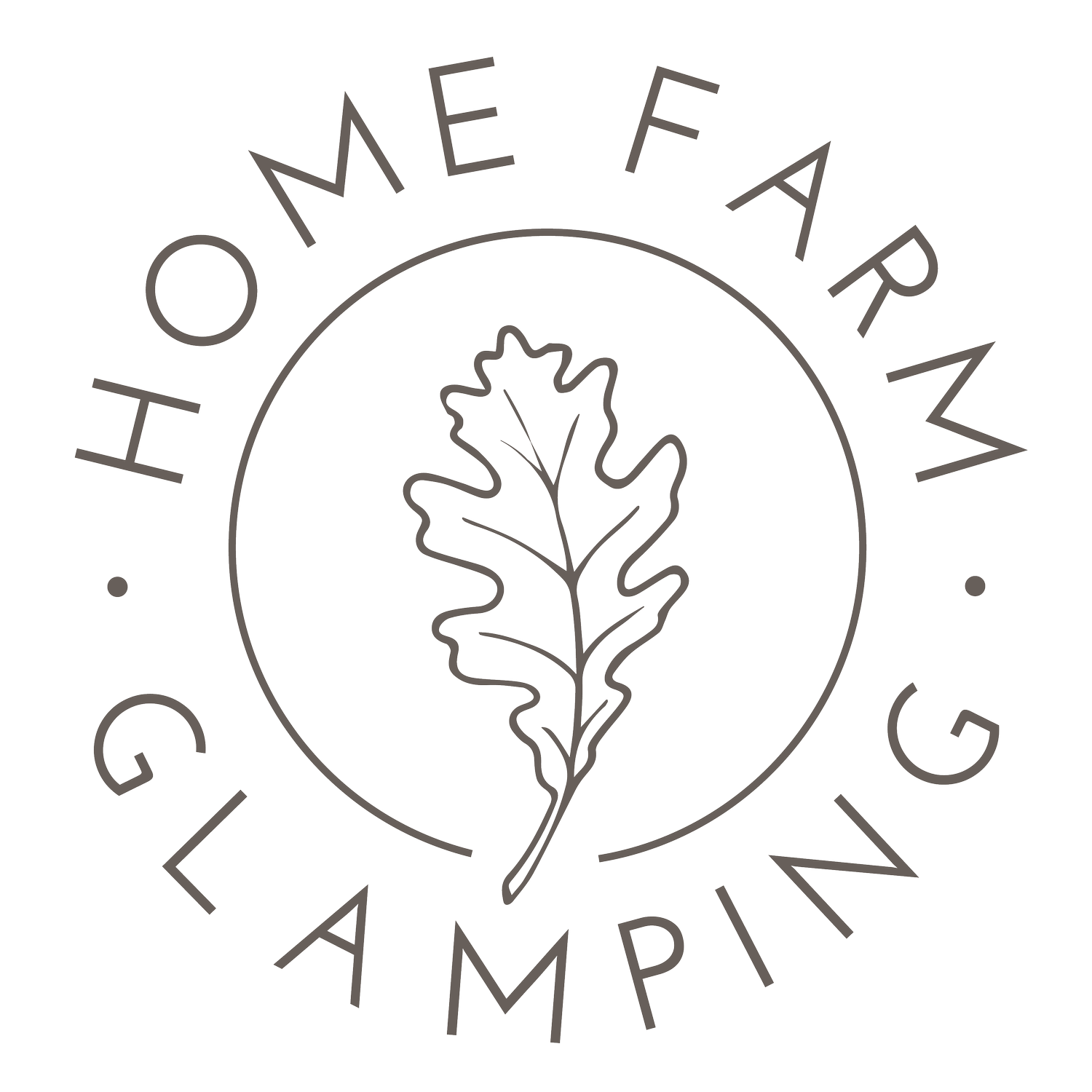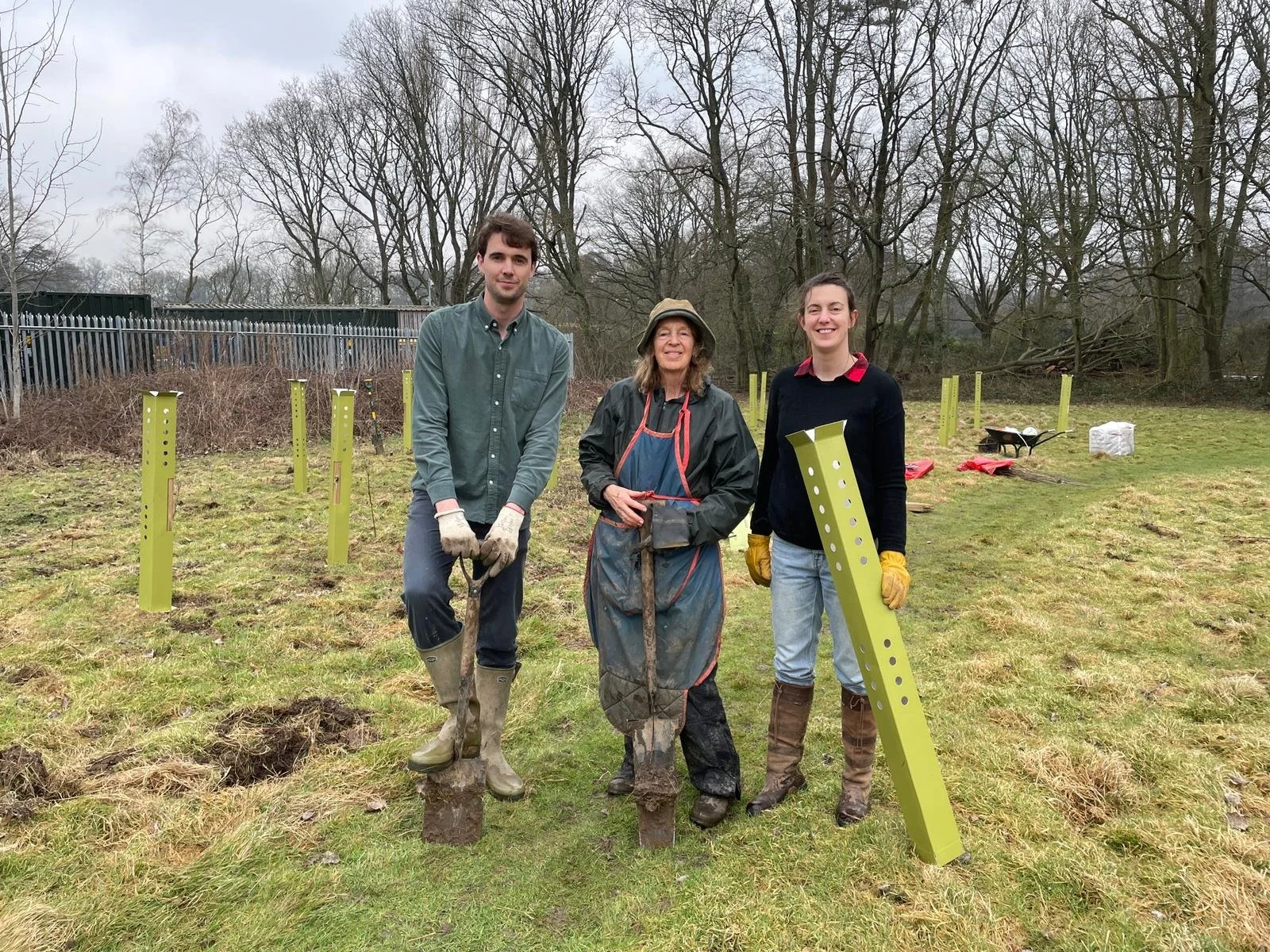Our journey to Net Zero
Focussing on nature in 2024
The Aldenham Estate (where Home Farm Glamping sits), is working with experts from Herts & Middlesex Wildlife Trust to implement an ambitious Environment Management Plan designed to increase biodiversity across the Estate and help address the devastating findings of the Hertfordshire State of Nature report that was published in 2020.
So far we have planted nearly 3,000 trees, restored hedgerows, reinstated 6 ghost ponds, removed swathes of non-native plants from our woodlands and installed nesting boxes for a wide range of bats songbirds and owls, with the help of corporate groups and local schools. We're already starting to see the results, with species returning that haven’t been seen for many years, but we still have plenty to do across our woodlands and meadows.
One of our main focuses in 2024 is to restore and rejuvenate our lake which, despite looking beautiful and serene, has recently been deemed ecologically dead. The study confirmed some of our worst fears, and highlighted one of the problems we face: it's easy for nature lovers without extensive ecological experience to look at the countryside around us and assume all is well, but in many cases this is entirely untrue. In our case, our wonderful Tykes Water Lake just isn't serving nature effectively. It has the potential to be a valuable habitat for birds, mammals, amphibians and insects and to play a vital role in creating a varied and biodiverse ecosystem for the local area. We'll share our progress with you in due course.
What we’re doing with our carbon summary
Home Farm Glamping has been working with Wenta over the past 6 months to create a path to net zero. I'm delighted to share that last week we were awarded our Gold Badge for undergoing their sustainability training and have received our greatly anticipated carbon report.
Being a small, boutique glamping site our direct carbon emissions were unsurprisingly low, but we're still rising to the challenge of reaching net zero. I am exploring 100% renewable energy tariffs and working with our suppliers (laundry services, deliveries etc.), to lower our downstream emissions, which are not taken into account in the carbon report. Some emissions are hard to avoid, for instance the carbon emitted from our team commuting to our rural site where public transport does not reach us but the ones within our control we're going to be changing by the start of 2025's glamping season.
An option we have is to offset our emissions with an accredited offsetting scheme, but we would really rather be able to consider the work we're doing on the Estate as negating our impact. Given all we are doing towards our Environmental Management Plan, and how low our emissions are compared to larger businesses, it feels somewhat crazy that we don't qualify as a net zero business simply because we can't measure the carbon absorption the biodiversity work is achieving, other than the trees we’re planting. We have asked ourselves the question, if Home Farm can't achieve net zero now then what hope is there for larger businesses who don't have 150 acres of land to work on!?
We're starting with the low-hanging fruit and exploring options with our agricultural and environmental friends on how we measure the work we're doing on the Estate and making the changes within our control to improve our sustainability credentials.
If you’re coming to visit us at Home Farm Glamping this summer we hope you’ll ask our team about the work we are doing, and if you’d like to get involved please do get in touch!



